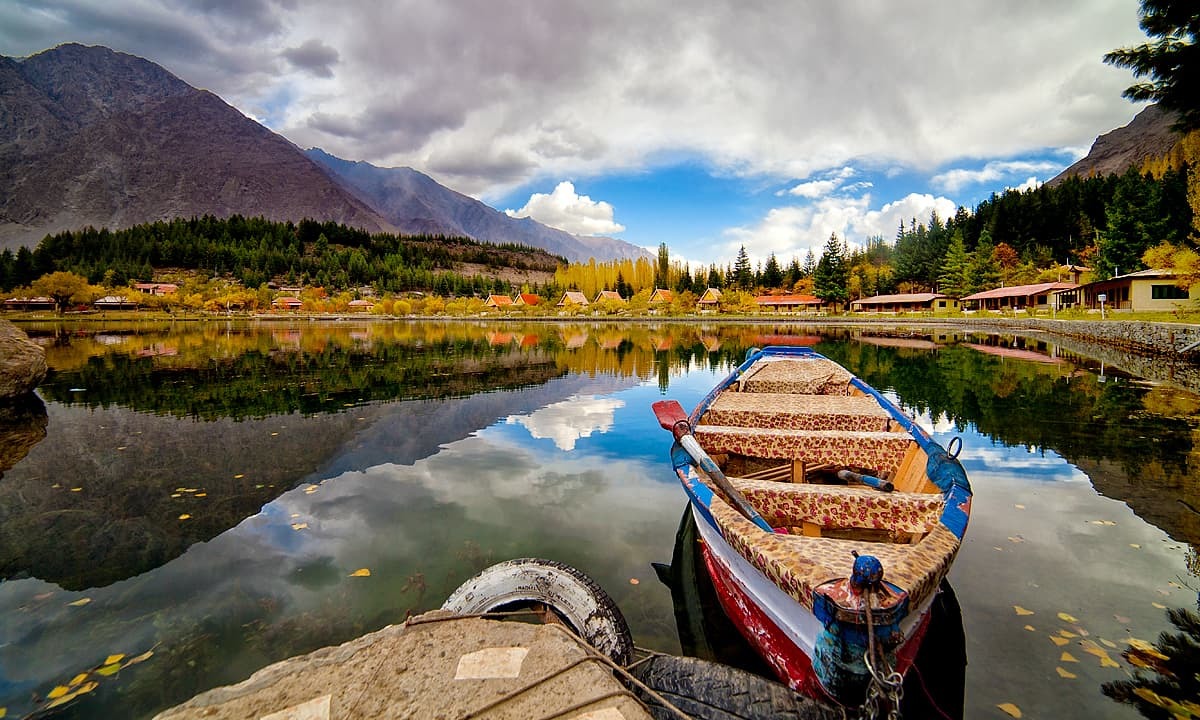Recently, when PTI Chairman Imran Khan tweeted pictures from his trip to Kumrat and Palas in Kohistan, a lot of domestic tourists started visiting those areas.
In the eight years following tourism’s devolution to the provinces, the sector continues to be vastly ignored. The failure ranges from evolving a provincial tourism policy to inadequate infrastructure to attract domestic and international tourists.
The tourism sector, despite its huge potential, is still not a priority subject. Consequently, the share of travel and tourism in GDP has stagnated to around 2.8 per cent despite its huge potential. In many countries this share is around 30pc with almost similar opportunities for attracting tourists.
The industry suffered a setback due to the security situation post 9/11 when international tourists’ arrival almost stopped.
On the policy side, Khyber Pakhtunkhwa has emerged as the foremost province in developing a provincial tourism policy which it is consequently implementing. Balochistan also passed the Balochistan Tourism Act and travel guide in 2014. In Azad Jammu and Kashmir a state tourism policy was drafted in 2016 but it has yet to be cleared by the law division.
There is no dedicated provincial tourism policy in Punjab and Sindh while in Gilgit Baltistan the subject is still under the purview of the federal government which seems to have no policy active or institution to promote international tourism.
To reap the benefit of tourism, the provinces have identified sites to develop tourism facilitation centres. Balochistan identified 64 sites with an aim to enhance natural and heritage tourism while Punjab has highlighted, as a success story, its sightseeing bus service in Lahore and its Cholistan desert rally and Murree chairlift scheme.
In KP, Punjab and Kashmir further potential exists in religious tourism (Sikhism, Hinduism and Buddhism), showcasing Mughal and British imperial structures and eco-tourism.
The real problem is in the implementation of cohesive policies to attract tourists.
The challenges identified in hindering tourism in Pakistan are mostly related to inadequate infrastructure, negative travel advisory to international tourists, boarding and lodging, poor connectivity through air and road, NoC requirement for foreigners to visit northern areas including AJK, trust deficit in public and private sector, poor tour operators and no skilful workers in the industry.
It is because of these challenges, that Pakistan was ranked at 124 out of 136 countries covered in the Travel and Tourism Competitiveness Index 2017 of the World Economic Forum. The worst ranking was due to visa requirement where ranking was 135 out of 136 countries.
In terms of prioritisation of travel and tourism the country ranked at 132 among the 136 countries surveyed in the report. Similarly, the effectiveness of marketing and branding to attract tourists got the ranking of 125 out of 136.
According to the report, the quality of tourism infrastructure was ranked at 123, while hotel rooms got ranking of 129. There are a total of 36 world heritage cultural sites in Pakistan while attractiveness of natural assets scored 127.
In discussions and interviews with tour operators and provincial tourism departments, few areas that needed action were identified: revival of tax concessions on import of hotel machinery, land being offered on lease, taxes being rationalised to develop hotels and a formal institute to train and develop human resource for tourism services.
There is no coordination marketing strategy. At the federal level there is no department to coordinate with provinces in promoting tourism at international level. It can be entrusted to the Trade Development Authority of Pakistan. There are few models which can be replicated like Malaysian Tourism and Exports Development Board and the Dubai Commerce and Tourism Marketing Board. These two boards are responsible for marketing tangible products and tourism services.
In the absence of international tourists, the KP government has invested billions on basic facilities for attracting domestic tourists in the province.
In the first phase, reforms were carried out in Galiyat including Nathiagali. These reforms include roadside tourist facility —tyre shop, prayer area and tuck shop. Similarly, another Rs2.3bn will be spent on another project ‘Tourism Area Integrated Development Unit’ in Kalam, Naran, Chitral and Shangla. Under this project, similar facilities will be offered to tourists.
According to an official of KP tourism department, another $55 million was recently approved for developing other tourist sites like Kumrat, Jaaz Banda etc. However, he said all these developments are linked with the availability of land for developing tourist sites.
In the last two years, domestic tourists visiting KP surged to 20m from 8m. “We are expecting that this figure will further increase following more facilities to come on ground”, he said.
The provincial government is also carrying out a sectoral analysis at a cost of $2.3m for which consultants have been hired.
The government of KP has also launched Camping pods, imported from Europe, in almost all scenic areas in KP.
Published in Dawn, The Business and Finance Weekly, December 11th, 2017













































